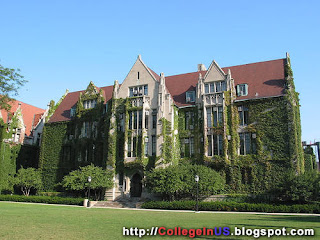Detail Overview Princeton University 2013
 Detail Overview Princeton University 2013 - Chartered in 1746 as the College of New Jersey — the name by which it was known for 150 years — Princeton University was British North America’s fourth college. Located in Elizabeth for one year and then in Newark for nine, the College of New Jersey moved to Princeton in 1756. It was housed in Nassau Hall, which was newly built on land donated by Nathaniel FitzRandolph (see A Princeton Timeline). Nassau Hall contained the entire College for nearly half a century. In 1896, when expanded program offerings brought the College university status, the College of New Jersey was officially renamed Princeton University in honor of its host community of Princeton. Four years later, in 1900, the Graduate School was established.
Detail Overview Princeton University 2013 - Chartered in 1746 as the College of New Jersey — the name by which it was known for 150 years — Princeton University was British North America’s fourth college. Located in Elizabeth for one year and then in Newark for nine, the College of New Jersey moved to Princeton in 1756. It was housed in Nassau Hall, which was newly built on land donated by Nathaniel FitzRandolph (see A Princeton Timeline). Nassau Hall contained the entire College for nearly half a century. In 1896, when expanded program offerings brought the College university status, the College of New Jersey was officially renamed Princeton University in honor of its host community of Princeton. Four years later, in 1900, the Graduate School was established.Fully coeducational since 1969, Princeton for the past academic year (2011-12) enrolled 7,757 students — 5,173 undergraduates (730 of whom are New Jersey residents, representing almost every county in the state) and 2,584 graduate students (degree candidates only). The ratio of undergraduate students to faculty members (in full-time equivalents) is 6 to 1.
The University provides its students with academic, extracurricular and other resources — in a residential community committed to diversity in its student body, faculty and staff — that prepare them for positions of leadership and lives of service in many fields of human endeavor.
Living up to its unofficial motto, “In the Nation’s Service and in the Service of All Nations,” Princeton University has educated thousands of individuals who have dedicated their lives to public service, including two U.S. presidents (Woodrow Wilson and James Madison); hundreds of U.S. and state legislators (the House of Representatives, for example, has housed a Princeton alumnus every year since it first met in 1789); and 44 governors, including 11 New Jersey governors.
Each year, more than 2,500 members of the student body, faculty, staff and local alumni volunteer in community service projects throughout the region. Reflecting this public service spirit, the University as an institution supports many service initiatives (see Service and Outreach). Princeton’s Office of Sustainability helps ensure progress in areas where the University has been a leader, such as energy conservation (see Sustainability).
As a research university, Princeton seeks to achieve the highest levels of distinction in the discovery and transmission of knowledge and understanding. At the same time, Princeton is distinctive among research universities in its commitment to undergraduate teaching. Interdisciplinary work is vital to Princeton and is reflected in a full spectrum of academic programs, including such initiatives as the Lewis Center for the Arts, the Center for African American Studies and the Princeton Neuroscience Institute.
Princeton’s main campus in Princeton Borough and Princeton Township consists of approximately 9 million square feet of space in more than 180 buildings on 500 acres. Including Springdale Golf Course, Lake Carnegie and roads for which the University owns the right-of-way, Princeton owns 759 acres in the township and has 214 acres in the borough.
The University, with approximately 5,974 benefits-eligible employees, is one of the region’s largest private employers. It plays a major role in the educational, cultural and economic life of the area by bringing 784,000 visitors and approximately $2 billion in economic activity to the region.
Source : http://www.princeton.edu



 Division of Continuing Education
Division of Continuing Education Faculty of Arts & Sciences
Faculty of Arts & Sciences Graduate School of Design
Graduate School of Design Harvard Graduate School of Education
Harvard Graduate School of Education Harvard Kennedy School
Harvard Kennedy School Harvard Law School
Harvard Law School Harvard School of Public Health
Harvard School of Public Health Harvard College
Harvard College Harvard School of Dental Medicine
Harvard School of Dental Medicine Harvard Divinity School
Harvard Divinity School School of Engineering and Applied Sciences
School of Engineering and Applied Sciences Graduate School of Arts & Sciences
Graduate School of Arts & Sciences Harvard Medical School
Harvard Medical School Radcliffe Institute for Advanced Study
Radcliffe Institute for Advanced Study


















